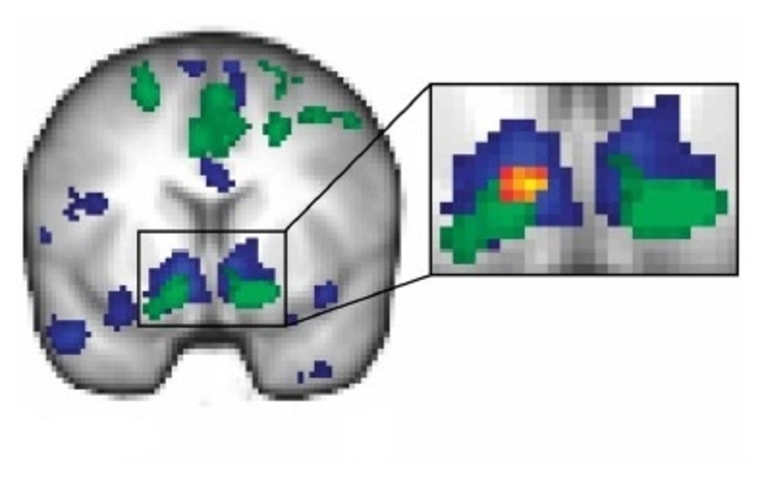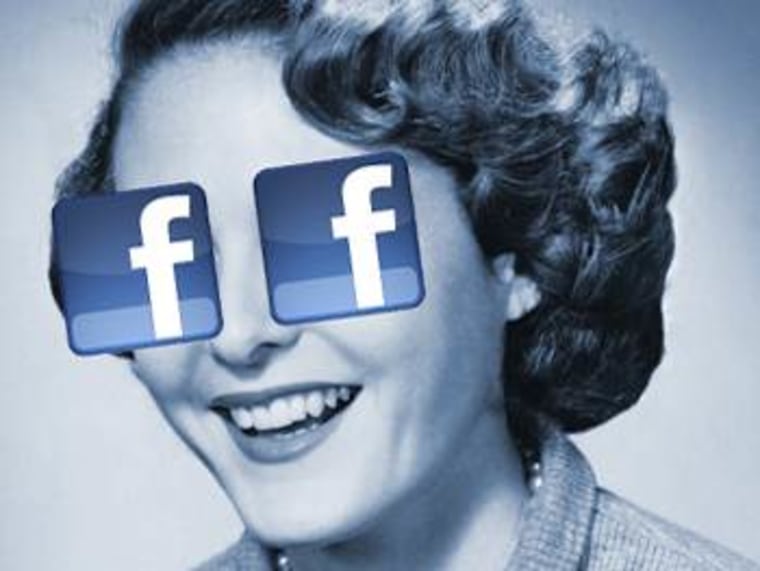It only makes sense: Neuroscientists see a link between your drive to build a better reputation and the intensity of your Facebook usage. They say the two activities stimulate a reward center in the brain, known as the nucleus accumbens, in a similar way.
The nucleus accumbens figures in a wide variety of cravings, including food and sex as well as gambling, booze and rock 'n' roll.
That little knot of neurons also plays a part in how good you feel about financial gain — but in a series of experiments, researchers in Germany found that Facebook usage seems more closely related to a boost in reputation than a boost in the bank account.
"As human beings, we evolved to care about our reputation," Dar Meshi, a neuroscientist at Berlin's Free University and the lead author of a paper published in Frontiers in Human Neuroscience, said in a news release. "In today's world, one way we're able to manage our reputation is by using social media websites like Facebook."
Meshi and his colleagues recruited 31 experimental subjects and brought them in for two days of tests. On the first day, they were interviewed on video and filled out a questionnaire asking about their Facebook habits: How many Facebook friends did they have? How many minutes did they spend on Facebook? Would they be sorry if Facebook was shut down?

On the second day, they were hooked up to a brain scanner. While their brain was being scanned, they were asked to play a card game with a range of payoffs (€10 to €22, which is the equivalent of $13 to $30) and find out what the researchers thought of their videos.
The researchers saw a stronger response in the nucleus accumbens when the subject's own video was praised than when someone else's video was discussed in a positive light. The strength of this difference corresponded to the reported intensity of the subject's Facebook use. However, there was no correlation between Facebook usage and the nucleus accumbens' response to monetary rewards.
"Our study reveals that the processing of social gains in reputation in the left nucleus accumbens predicts the intensity of Facebook use across individuals," Meshi said. "These findings expand upon our present knowledge of nucleus accumbens function as it relates to complex human behavior."
The authors point out that heavy Facebook usage can have negative effects, ranging from lower school grades and reduced office productivity to honest-to-goodness addiction and depression. They say their research may thus suggest some new avenues for educational and clinical research on those topics.
"It's important to note, however, that our results do not determine if positive social feedback drives people to interact on social media, or if sustained use of social media changes the way positive social feedback is processed by the brain," the researchers wrote.
Does Facebook change your brain? Now there's a question worth wondering about. Feel free to weigh in with your comments, or cast a vote in our unscientific survey.
More about the science of Facebook:
- Facebook 'likes' can reveal your personal traits
- Facebook posts are more memorable than faces
- Facebook's roots go way, way back
In addition to Meshi, the authors of "Nucleus Accumbens Response to Gains in Reputation for the Self Relative to Gains for Others Predicts Social Media Use" include Carmen Morawetz and Hauke Heekeren.
Alan Boyle is NBCNews.com's science editor. Connect with the Cosmic Log community by "liking" the NBC News Science Facebook page, following @b0yle on Twitter and adding the Cosmic Log page to your Google+ presence. To keep up with NBCNews.com's stories about science and space, sign up for the Tech & Science newsletter, delivered to your email in-box every weekday. You can also check out "The Case for Pluto," my book about the controversial dwarf planet and the search for new worlds.
